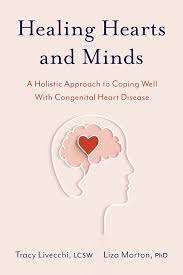
In a world where the pace of life is ever-accelerating, mental health has become one of the most vital aspects of overall well-being.
The Heart of Holistic Wellness
Holistic mental health goes beyond symptom management. It encourages individuals to explore their emotional, physical, social, and spiritual dimensions, recognizing that lasting wellness comes from harmony among these facets.
This perspective aligns well with the growing values of young professionals, health-conscious individuals, and environmentally aware communities who seek balance, meaning, and sustainability in their lives.
Why Support Matters
Support systems are the bedrock of emotional health. Whether through friendships, family, or professional guidance, having someone to lean on in moments of vulnerability makes a profound difference.
- Emotional Validation: Simply being heard and understood reduces feelings of isolation.
- Accountability: Support networks encourage consistency in self-care practices.
- Perspective: Others can help us see our experiences through a different, often more compassionate, lens.
Community circles, peer support groups, and online mental health platforms have all emerged as powerful tools for connection, especially when professional therapy isn’t accessible.
The Role of Mindfulness
It allows us to observe our thoughts and emotions with compassion rather than criticism.
Some accessible mindfulness techniques include:
- Breathwork: Grounding the mind through conscious breathing
- Meditation: Cultivating inner stillness and clarity
- Mindful Walking or Eating: Turning routine activities into opportunities for awareness
These practices foster resilience, emotional regulation, and deeper self-understanding, all of which are key to holistic mental health.
Nutrition and Mental Health
What we eat directly impacts how we feel.
Consider incorporating:
- Probiotics (from yogurt, kefir, or fermented vegetables)
- Whole grains and leafy greens (rich in B vitamins and magnesium)
Avoiding excessive caffeine, sugar, and processed foods can also contribute to emotional steadiness.
Movement as Medicine
Physical activity is a well-documented stress reliever and mood booster. You don’t have to commit to high-intensity workouts to feel the benefits—gentle movement like yoga, tai chi, or even daily stretching can significantly elevate your sense of well-being.
- Yoga improves flexibility and releases tension stored in the body.
- Tai Chi enhances balance and mental focus.
- Dance and expressive movement promote emotional release and joy.
When movement is approached as a form of self-care rather than self-discipline, it becomes a tool for healing.
Spiritual Connection and Purpose
Spirituality, whether religious or secular, plays an essential role in holistic wellness. It provides a sense of meaning, connectedness, and peace. Practices such as prayer, journaling, nature immersion, or attending spiritual gatherings can help ground us in something larger than ourselves.
Finding purpose—be it through creative expression, volunteering, or building community—also strengthens our mental resilience and brings fulfillment.
Therapeutic Integration
While holistic methods can be powerful, they are often most effective when integrated with evidence-based therapies. Cognitive Behavioral Therapy (CBT), Dialectical Behavior Therapy (DBT), or psychodynamic approaches can coexist with mindfulness and lifestyle changes.
Some therapists specialize in integrative approaches that combine traditional psychology with holistic modalities such as art therapy, music therapy, or energy healing. The key is to find what combination of methods best supports your unique journey.
Creating Your Personalized Path
Everyone’s mental health journey is different. The goal of holistic healing isn’t perfection, but conscious alignment with one’s values and needs. Start small:
- Begin with a daily mindfulness practice.
- Reevaluate your diet and hydration habits.
- Connect with a friend or support group weekly.
- Journal your thoughts and emotions.
- Reach out to a mental health professional who resonates with your vision of wellness.
Final Thoughts
Healing hearts takes time, presence, and intention. A holistic approach empowers us to tune in—not just to our struggles, but to our strengths. By weaving together support, mindfulness, and lifestyle choices, we nurture a well-rounded foundation for enduring mental wellness.
For more resources on emotional well-being and supportive guidance, visit https://mindzo.us.